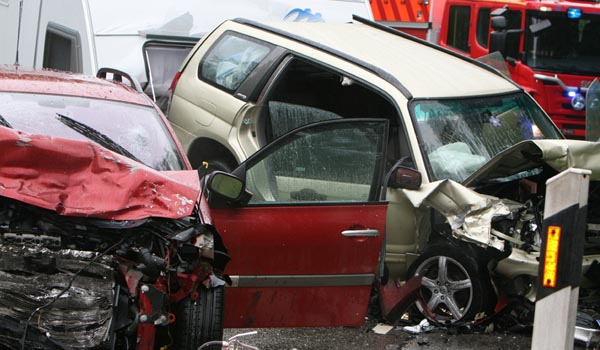Car Crashes More Deadly for Obese Drivers

Obesity increases the risk of death during car crashes, a new study suggests.
In the study, obese drivers — those with a body mass index (BMI) between 30 and 35 — were 20 percent more likely to die during a car crashcompared to normal-weight individuals.
Morbidly obese individuals — those with a BMI of 40 and above — were 80 percent more likely to die in a car crash. BMI is a ratio of weight to height and is considered an indicator of body fatness.
The results held even after the researchers accounted for factors that could influence the risk of death in a car crash, such as age, alcohol use, seat belt use, and whether or not the air bag deployed.
The findings agree with those of previous studies, including a study published in 2010 that found an increased risk of death during car crashes for people with a BMI over 35.
The new study analyzed information from 3,400 pairs of drivers (one from each vehicle) involved in a car crash between 1996 and 2008. To be included in the study, the drivers in the pair had to be driving similarly sized cars. Because the study involved pairs of drivers, characteristics of the crash, such as the severity of the crash and how long it took for medical services to arrive on the scene, would be the same for each person in the pair. About 18 percent of those in the study were considered obese.
Obese people are more likely to have medical conditions, such as cardiovascular disease, which may increase their risk of dying during a car crash, the researchers said.
Get the world’s most fascinating discoveries delivered straight to your inbox.
In addition, changes in car design may be necessarily to better protect obese drivers in car crashes, the researchers said. One study found obese drivers traveled farther in their seats before their seat belts engaged in the pelvis area during a crash compared to normal-weight drivers. The delay in seat-belt activation was due to more soft tissue in the abdomen that prevents the belt from fitting close to the pelvis, the researchers said. While the legs and abdomen traveled father from the seat in obese people compared to normal- weight individuals, the upper body was held back, the researchers said.
Being underweight also increased the risk of death, but this effect was seen only in men.
The new study is published today (Jan. 21) in Emergency Medicine Journal.
Pass it on: Car crashes are more likely to be fatal for obese drivers.
Follow Rachael Rettner on Twitter @RachaelRettner, or MyHealthNewsDaily @MyHealth_MHND. We're also on Facebook & Google+.

Rachael is a Live Science contributor, and was a former channel editor and senior writer for Live Science between 2010 and 2022. She has a master's degree in journalism from New York University's Science, Health and Environmental Reporting Program. She also holds a B.S. in molecular biology and an M.S. in biology from the University of California, San Diego. Her work has appeared in Scienceline, The Washington Post and Scientific American.
